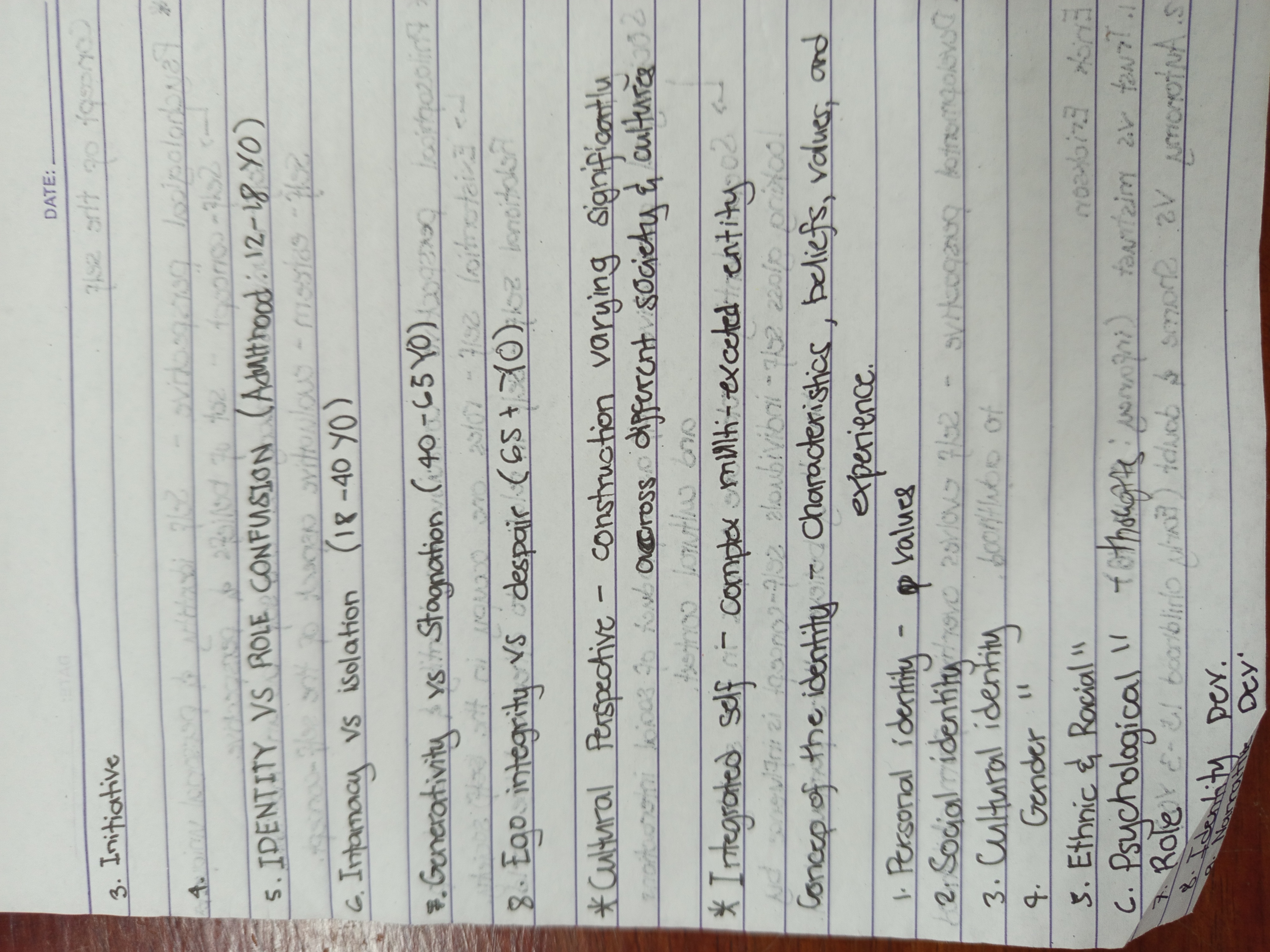
Understand the Problem
The image discusses various aspects of identity development across different stages of life, integrating concepts like intimacy, generativity, and cultural perspectives related to personal identity and social roles.
Answer
The notes discuss Erikson's psychosocial development stages and the multifaceted concept of identity influenced by personal, social, cultural, gender, ethnic, psychological, and role factors, varying across cultures.
The notes describe Erikson's stages of psychosocial development and the concept of identity. Erikson's stages include Identity vs Role Confusion (12-18 years), Intimacy vs Isolation (18-40 years), Generativity vs Stagnation (40-65 years), and Ego Integrity vs Despair (65+ years). Identity is seen as a complex, multifaceted entity influenced by personal, social, cultural, gender, ethnic, psychological, and role factors, with significant cultural variations.
Answer for screen readers
The notes describe Erikson's stages of psychosocial development and the concept of identity. Erikson's stages include Identity vs Role Confusion (12-18 years), Intimacy vs Isolation (18-40 years), Generativity vs Stagnation (40-65 years), and Ego Integrity vs Despair (65+ years). Identity is seen as a complex, multifaceted entity influenced by personal, social, cultural, gender, ethnic, psychological, and role factors, with significant cultural variations.
More Information
Erikson’s theory delineates the significant stages individuals go through as they develop and the identity crises they must resolve. Each stage builds on the outcomes of the previous stages and impacts the individual's overall psychological development.
Tips
A common mistake is to assume that these stages are rigidly fixed in age. In reality, the age ranges are approximate and the stages can vary for each individual.
Sources
- Erikson's Psychosocial Developmental Stages - Stony Brook University - stonybrook.edu
- Identity Development - Simply Psychology - simplypsychology.org
AI-generated content may contain errors. Please verify critical information